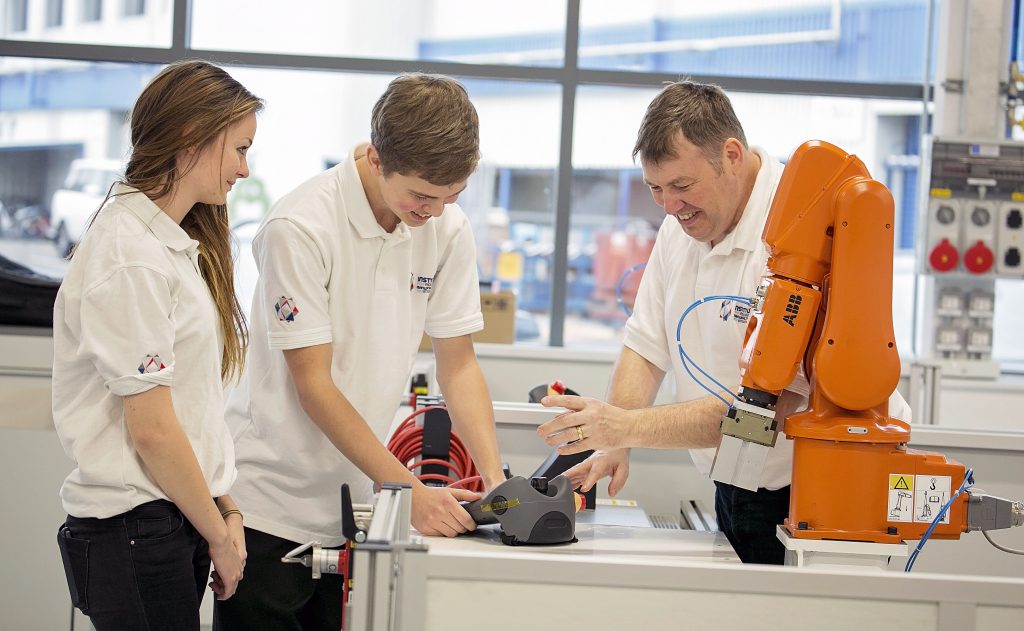The UK is facing a problem. Gaps in skills are becoming ever more critical in light of a rapidly evolving economy but there is a fundamental misunderstanding of the nature and delivery of the Higher Technical Education we will rely on to address these shortages. As we prepare for a new government, it is more important than ever to tackle these misconceptions and ensure that Further and Higher Education are accessible to, and work for, everyone.
Shortly after his appointment as education secretary, Gavin Williamson declared that in the future, vocational and technical training “could become more popular than going to university”. This statement was symptomatic of a problematic British tendency to divide post-18 education into two distinct camps: “academic“(delivered by universities) and “vocational” (delivered by further education colleges). However, like so many things in life, the reality is more complicated – and all the richer for it.
All universities offer degrees which could be considered “vocational” – including law, nursing and allied health professions, teaching, engineering, computing and graphic design (to name a few). Alliance universities specialise in these offerings. Proud leaders in technical education since the Industrial Revolution, their distinct form of pedagogy supports the acquisition of applied knowledge and skills, meeting the needs of industry and public services.
Whether it is budding journalists at Birmingham City University benefiting from their partnership with HuffPost, future Police Officers earning while they learn on the degree apprenticeship at UWE Bristol, or students at Coventry University gaining real-life engineering experience in the ‘Faculty on the Factory Floor’, students across Alliance Universities are benefitting from an applied, technical, vocational education.

Coventry University’s Institute for Advanced Manufacturing
There are blurred boundaries between HE and FE everywhere you look. Both universities and colleges offer a wide range of higher technical education at levels 4 and 5, between A Levels and Degree level, as well as apprenticeships and degree apprenticeships.
At the same time, most FE colleges now provide higher education at undergraduate and postgraduate level. In 2018/19, 149,000 people studied higher education in a college, according to the Association of Colleges. Nine FE colleges now have degree awarding powers in their own right. The remainder work with in partnership with universities, who accredit their courses.
Such partnerships have long histories in Alliance Universities, who work with local colleges to ensure a seamless pathway of education and training from FE to HE, which learners may access throughout their lives. For example, the Hertfordshire Higher Education Consortium, comprising the University of Hertfordshire and four FE colleges, provides students with access to a University of Hertfordshire validated HE course within their local area, allowing students the opportunity to progress to the University on completion of their course. Since the Consortium was established in 2000, 15,000 students have come to the University through this route.
Although there is a rich patchwork of higher technical provision offered in both college and university settings, it is not always easy to access. The post-18 funding system poses a number of barriers, in particular for part-time students, mature students and students from disadvantaged backgrounds. There has been a shocking decline in the number of mature and part-time students in England since the 2012/13 HE funding reforms. The Augar Review and election promises from all parties have thankfully shone a spotlight on the woeful underfunding of the FE sector.
The global economy is evolving rapidly, but gaps in skills have left the UK lagging behind the curve in a number of areas, including engineering, ICT and the creative industries. Employers have told the CBI and Pearson that improving technical and further education is essential for developing the UK’s skills base. According to the World Economic Forum, more than half of all employees will require extensive upskilling or reskilling as early as 2022. We do not have much time to ensure we have the post-18 education ecosystem needed to achieve this mammoth task. Neither universities nor colleges can do it alone.
That is why University Alliance is calling on the next government to build a more integrated tertiary education system that further incentivises HE and FE to work in partnership to deliver flexibility, choice and clear career pathways for learners of all ages and backgrounds.
The next government must, as a matter of urgency:
- Reform the post-18 funding system so that it supports all types of learners (full- and part-time), as well as flexible and lifelong learning
- Retain funding for foundation years wherever they are undertaken, ensuring maximum flexibility and choice for a wide range of learners
- Improve pathways for higher technical qualifications at levels 4 and 5 and degree apprenticeships




